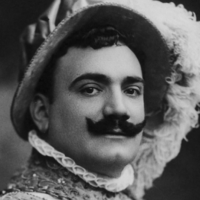Here at Cambridge, the first term of the academic year is coming to a close. That means that planning and auditions for next term’s performances are well underway. Because I act in plays and sing in musicals and operas, I have been attending a lot of auditions–sixteen this week alone, to be exact. I’m definitely not the best person at keeping sane amid this all, but I do try. Here are some tips I’ve picked up from living the craziness:
- Stay hydrated. It can be hard to remember to drink water when you’re running from audition to audition all day and not stopping to sit down for meals. Bring a water bottle and use it! It really does help with the singing. Remember to drink from it consistently across the course of the day rather than in large draughts when you’re thirsty.
- Stay fed. This goes with the above: It’s easy to skip meals in the audition craziness. But I guarantee you your auditions will be better if you’ve had something (preferably something healthful) to eat.
- Be prepared. Assume the accompanist will utterly fail at playing the music and be ready for that. Assume the sides/pieces should be memorized (if they’re given to you in advance). Assume the audition pieces will make little sense out of context and that you should read or see the show in advance. It can be painful to spend hours preparing for an audition when the odds of rejection are high, but those odds are much higher is you don’t prepare!
- Take risks. There are at least a dozen other people who can offer a nice, thoughtful reading of the dialogue or a pretty interpretation of the song. You’re more likely to be memorable if you do something a little crazy that most of the rest of them don’t. Screams, laughs, sudden character shifts… Make it fit with the piece, but don’t just be like everyone else.
- Ask questions. Not sure whether they want to hear you belt or sing lyrically? Not sure what size theatre you should be imagining playing to? The director probably has an idea in his or her head, and your chances of nailing the audition are much better if you ask some questions and get a sense of that idea.
- Try to forget about auditions after you do them. Some audition panels will let you know within a day or two, and sometimes they’ll take weeks. You can’t afford to worry about when and what you’ll hear from every panel, so it’s best to try not to think about it until news comes.
- Find a good way to console yourself about rejection. When news finally comes, some of it will be bad. No matter how talented you are, there is no possible way every director will want you for their show. Your consolation could be anything from, “Well, there’s another show I wanted to be in the same week, so now I can audition for that” to “When Ian McKellen was at Cambridge, he only got tiny roles his freshman year, and look where he is now”. Whatever works for you.
- Ask for feedback. When you do get bad news, ask them what you could have done differently and why you didn’t get the part. Sometimes this is really unhelpful–I’ve gotten a lot of precisely contradictory feedback from different directors. But sometimes patterns emerge that indicate areas for you to work on.
- Apply for as many auditions as you can. The best way to get exciting roles is to audition for as many as possible. When there’s a lot of talent around, whether you get cast often comes down to minor quirks in your portrayal of the character. The more things you audition for, the greater the chance you’ll do an audition where your choices coincide with the director’s vision.
To anyone else experience audition craziness right now, good luck. I’d be very glad to hear any other advice you have for getting through it alive and sane!









